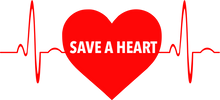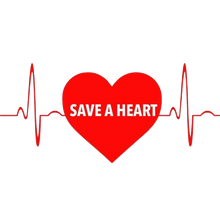Snow Shovelling Safety: Protecting Your Heart During Winter Chores

Snow Shovelling Safety: Protecting Your Heart During Winter Chores
As the snow approaches, so does the inevitable chore of shovelling snow. While clearing your driveway and sidewalks may seem like a routine task, it's essential to recognize the potential risks it poses to your heart health, especially after a heavy snowfall.
An article was posted this morning by the Toronto Star stating that shovelling snow can significantly strain your heart, increasing the risk of cardiac arrest, particularly for those who are less physically active or older. Patrice Lindsay, a registered nurse with the Heart & Stroke Foundation, emphasizes the importance of understanding the potential dangers associated with this strenuous activity.
"For people who haven't done a lot of exercise or are maybe older and not in as good shape, shovelling snow is a lot of hard work. It's a strenuous exercise, and the thicker and deeper and heavier the snow, the more strain on your (heart)," Lindsay explained.
Moreover, the cold weather adds another layer of risk, as your heart works harder to circulate blood and maintain body warmth. However, there are precautions you can take to mitigate these risks and ensure your safety while shovelling.
Listen to Your Body and Take Breaks:
One of the most critical steps in snow shovelling safety is listening to your body's signals. Pay attention to any signs of discomfort or fatigue, and take regular breaks to rest and catch your breath. Breaking up the task into smaller, manageable parts can help reduce strain on your heart and prevent overexertion.
Dress Appropriately:
Wearing proper attire is essential for staying warm and protecting yourself from the elements. Layer up with warm clothing, including a hat, thick gloves, and a scarf to cover your face. Dressing appropriately can help regulate your body temperature and minimize the added stress on your heart.
Recognize the Signs of a Heart Attack:
It's crucial to be aware of the warning signs of a heart attack and act promptly if you experience any symptoms. Chest discomfort, shortness of breath, nausea, and discomfort in the upper body are common indicators of a heart attack. If you or someone you know shows signs of a heart attack during or after shovelling snow, seek immediate medical attention.
Be Prepared with Emergency Aspirin:
In case of a heart attack, having emergency Aspirin on hand can be life-saving. Keep Aspirin easily accessible in our Save A Heart Pill Fob for quick access, regardless of where you are. Doctors recommend chewing and swallowing aspirin at the onset of heart attack symptoms, as it acts as a blood thinner, breaking apart forming blood clots and buying crucial time until medical help arrives.
In conclusion, while snow shovelling is a necessary winter chore, it's essential to prioritize your heart health and take precautions to prevent overexertion and potential cardiac risks. By listening to your body, dressing appropriately, and being prepared for emergencies, you can ensure a safer and healthier snow shovelling experience. Stay safe, stay informed, and take care of your heart.
To read the whole Toronto Star article please click here:
https://www.thestar.com/life/five-normal-things-youre-doing-that-could-land-you-in-the-er/article_eb498220-e6c9-11ee-ab7a-5bdc995182b6.html


